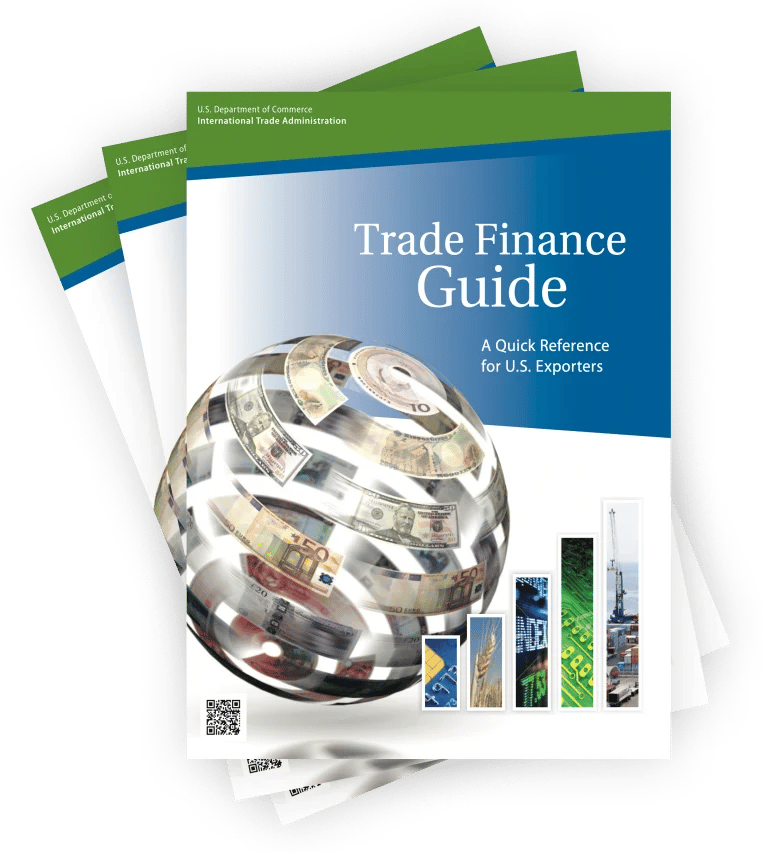The International Trade Blog International Sales & Marketing
10 Terms You Need to Know to Get Paid for Your Exports
On: May 22, 2024 | By:  David Noah |
5 min. read
David Noah |
5 min. read
 What’s the most rewarding, and sometimes frustrating, aspect of being an exporter for you? For many, it’s simply getting paid on time, in the correct amount.
What’s the most rewarding, and sometimes frustrating, aspect of being an exporter for you? For many, it’s simply getting paid on time, in the correct amount.
The rewarding part is self-explanatory. Obviously, we need to be able to earn a living! But the frustrating part is worth considering.
Take a look at these 10 terms and see if they can help you better understand the payment process (so you can make a profit sooner!).
Methods of Payment in International Trade
In a global marketplace, it’s more important than ever for exporters to offer their customers attractive sales terms supported by the appropriate payment methods. Here’s a look at the five primary methods of payment, from the most risk to the exporter to the least risk.

1. Consignment
Consignment is a variation of open account in which payment is sent to the exporter after the goods have been sold by the foreign distributor to the end customer. It is the riskiest of the most common methods of payment.
2. Open Account (O/A)
An open account transaction in international trade is a sale where the goods are shipped and delivered before payment is due, typically in 30, 60 or 90 days. Open accounts are risky for exporters; however, from your client's perspective, this is the preferred method of payment in terms of costs and risks.
3. Collections
Also called a documentary collection, this method of payment involves using banking channels for more than handling the movement of funds for your payment.
With a documentary collection, you’re relying on the bank to control your product until payment is made. Your bank (the remitting bank) sends documents to the importer’s bank (the collecting bank) along with instructions for payment. The funds are received from the importer and remitted to you in exchange for the documents. The most significant risk is your buyer saying they changed their mind and no longer want the product that was shipped.
4. Letter of Credit (L/C)
International letters of credit are a commitment by a bank on behalf of the foreign buyer that payment will be made to the beneficiary (exporter) provided the terms and conditions stated in the L/C have been met, as evidenced by the presentation of specified documents. It is one of the most secure methods of payment for an exporter.
There’s a lot to say about letters of credit. We’ve built up quite an archive of interesting posts that can help answer some of your questions about using letters of credit. Here are a few of our most noteworthy articles:
- International Letters of Credit: Best Practices for Exporters
- International Letter of Credit: What Constitutes a Discrepancy
- Methods of Payment in International Trade: Letters of Credit
5. Cash in Advance
With cash in advance, the exporter can eliminate credit risk or the risk of non-payment since payment is received prior to the transfer of ownership of the goods. Wire transfers and credit cards are the most commonly used cash-in-advance options available to exporters. With this option, you get paid upfront, and you can use your client's money to finance the production of the product you are selling.
Other Financial Terms
Once you've identified the sales term you plan to use, you need to understand the rules, documents and procedures you need to use to ensure payment.
6. Bank Draft and Transmittal Letter
To help in the transfer of exported goods, bank drafts are an essential part of the proper documentation to help keep shipping items organized along their route and efficiently moving for the exporter. You can download a free template of the bank draft and transmittal letter here.
7. Uniform Customs and Practice for Documentary Credits
The Uniform Customs and Practice for Documentary Credits (UCP 600) is a set of rules and regulations banks follow for letters of credit and other payment types. The UCP is governed by the International Chamber of Commerce (ICC). ICC’s rules on documentary credits, which are used for letter of credit transactions worldwide, were first established in the 1930s.
8. Telegraphic Transfer
Also known as a wire transfer, the telegraphic transfer is a common way to get paid when exporting internationally.
9. EXIM Bank
The Export-Import Bank of the United States (EXIM Bank) is the official export credit agency of the United States. Its mission is to ensure that U.S. companies of all sizes have access to the financing they need to turn export opportunities into sales. The EXIM Bank aims to help American businesses export fearlessly and make sure they get paid.
10. Arbitration
Arbitration is essentially private litigation. Instead of one party suing the other in a court system in a particular country, arbitration is consensual; that is, the parties must both agree to submit a dispute to arbitration. An agreement to arbitrate can be done up front in the contract by inserting an arbitration clause or even entered into after a dispute begins. The Advantages of Arbitration Clauses in International Contracts lists some of the benefits of choosing arbitration instead of going to court.
Another Trade Finance Resource
Watch the free webinar: Expanding Your Exports with Trade Finance Tools.
Laurie Wolff, CGBP, identifies the risks to your business that arise from international trade and the tools and resources available to manage those risks. Along with those extra risks come extra opportunities, because governments provide special assistance to firms seeking to grow their exports.
In addition, David Leonard, an Export Finance Manager with the Small Business Administration, answers specific questions about SBA trade finance products.
Like what you read? Subscribe today to the International Trade Blog to get the latest news and tips for exporters and importers delivered to your inbox.
This article was first published in February 2015 and has been updated to include current information, links and formatting.

About the Author: David Noah
As president of Shipping Solutions, I've helped thousands of exporters more efficiently create accurate export documents and stay compliant with import-export regulations. Our Shipping Solutions software eliminates redundant data entry, which allows you to create your export paperwork up to five-times faster than using templates and reduces the chances of making the types of errors that could slow down your shipments and make it more difficult to get paid. I frequently write and speak on export documentation, regulations and compliance issues.


